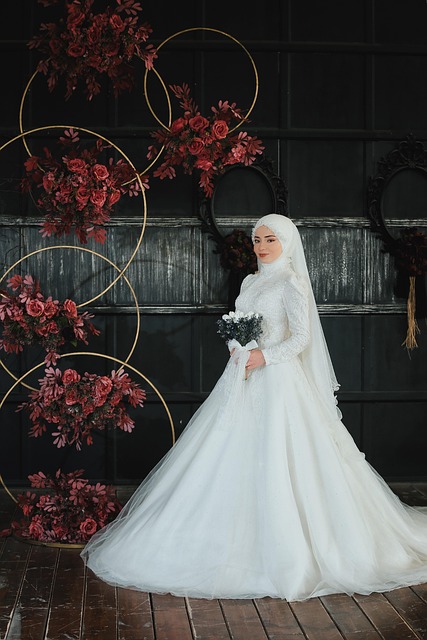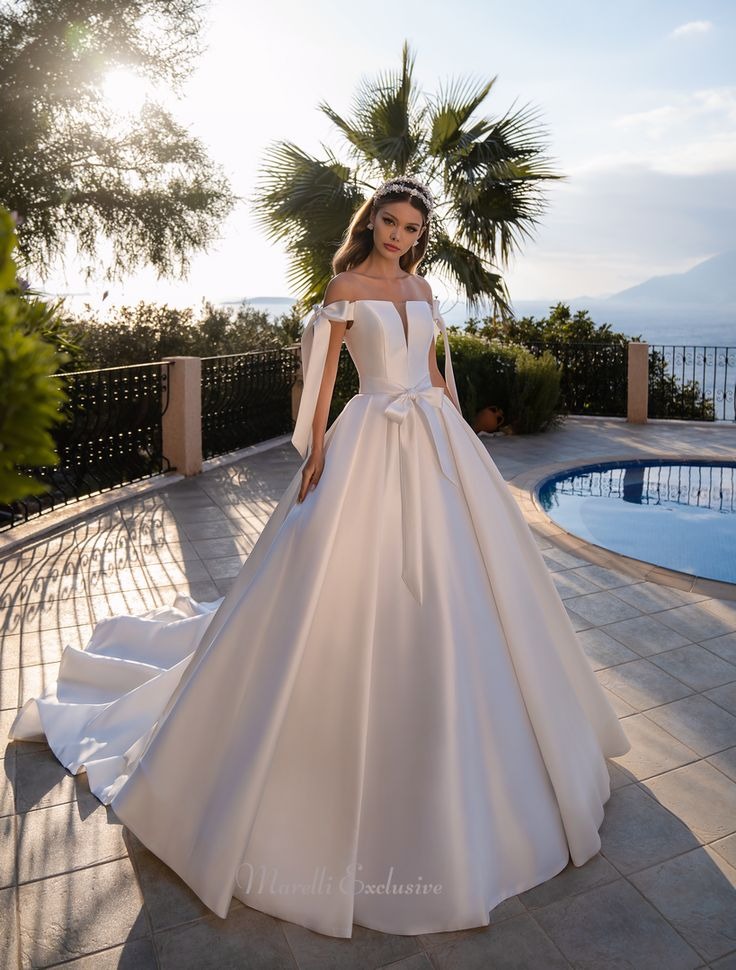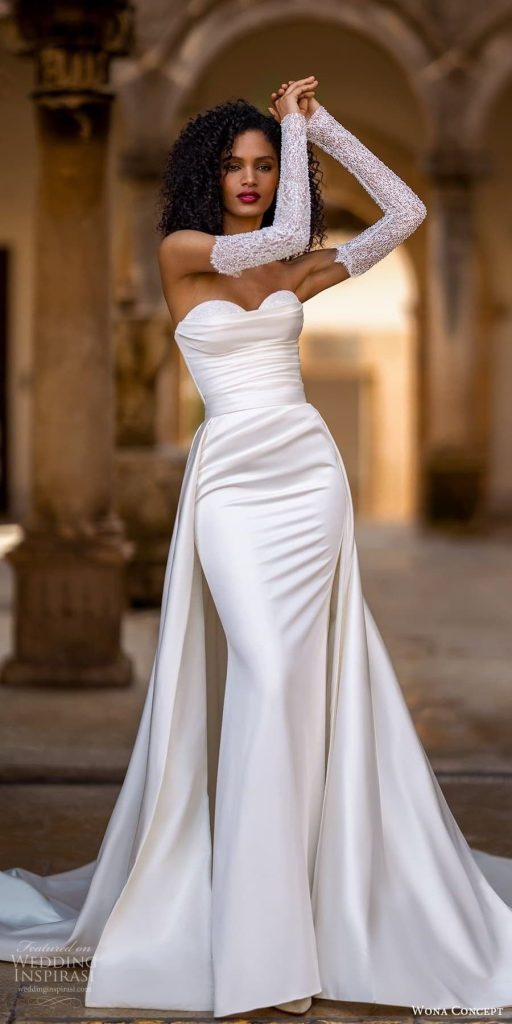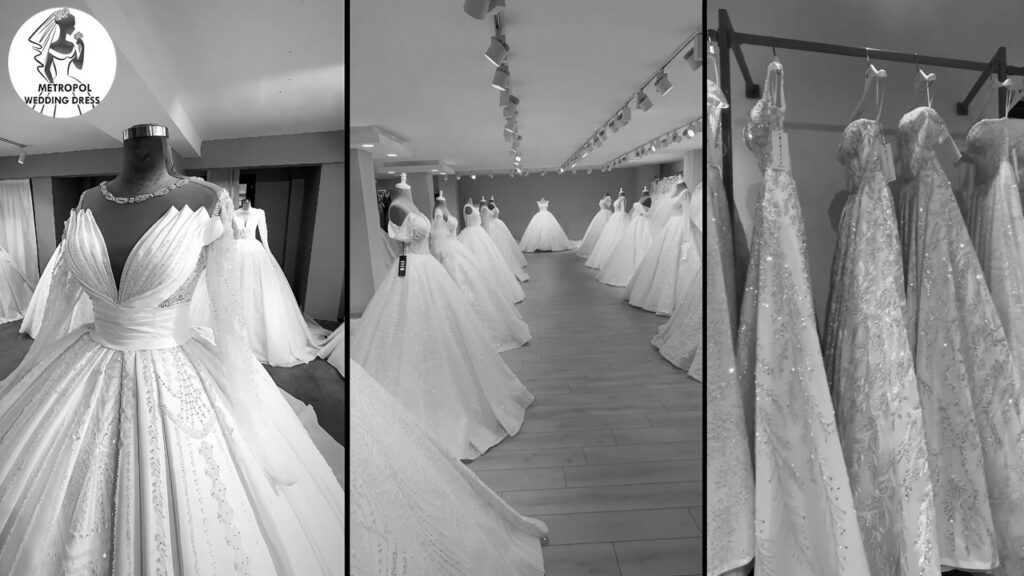
Turkish weddings are a vibrant mosaic of tradition, community, and celebration, deeply rooted in the cultural fabric of Turkey. These events are not merely the union of two individuals but a communal affirmation of family, heritage, and social bonds. Spanning days or even weeks, Turkish weddings blend ancient customs with modern influences, reflecting Turkey’s unique position as a bridge between East and West. From the intricate rituals of the henna night to the joyous dances of the wedding day, each element carries profound symbolic weight, embodying values of love, loyalty, and continuity.
Weddings in Turkey vary widely based on region, socioeconomic status, and religious observance, yet they share a common thread: the centrality of family and community. Whether held in a bustling Istanbul ballroom or a rural Anatolian village, these celebrations are marked by hospitality, music, and an outpouring of emotion. This article explores the historical evolution, pre-wedding customs, wedding day rituals, regional variations, and modern trends of Turkish weddings, offering a comprehensive look at one of Turkey’s most cherished traditions. By examining these elements, we uncover how Turkish weddings serve as both a mirror of cultural identity and a canvas for contemporary expression.
Historical Context
The roots of Turkish wedding traditions stretch back centuries, shaped by the diverse civilizations that have inhabited the region, from the Byzantines to the Seljuks and Ottomans. In the Ottoman Empire, weddings were lavish affairs for the elite, often lasting weeks and involving elaborate feasts, poetry recitations, and public processions. For commoners, weddings were simpler but still rich in ritual, emphasizing community involvement and familial alliances. Islamic traditions, introduced with the spread of Islam in the region, further shaped wedding practices, incorporating elements like the religious marriage contract (nikah) and gender-segregated celebrations.
During the Ottoman period, weddings were also a means of reinforcing social hierarchies. The dowry system, for instance, was a critical component, with families negotiating goods and wealth to secure favorable matches. These negotiations often extended beyond the couple to involve entire clans, reflecting the collectivist nature of Turkish society. The Republic of Turkey, established in 1923, brought reforms that modernized some aspects of weddings, such as the introduction of civil ceremonies and the abolition of polygamy. However, many traditional practices persisted, particularly in rural areas, where customs like bride price and arranged marriages remained prevalent well into the 20th century.
The 20th century also saw the influence of Westernization, particularly in urban centers like Istanbul and Ankara. Couples began adopting elements like white wedding dresses and tiered cakes, blending them with traditional practices. Despite these changes, the core values of Turkish weddings—hospitality, family unity, and communal celebration—have remained steadfast. Today, Turkish weddings are a dynamic interplay of historical legacy and modern innovation, reflecting both the resilience of tradition and the adaptability of Turkish culture.
Pre-Wedding Customs
The journey to a Turkish wedding begins long before the wedding day, with a series of customs that lay the foundation for the marriage. These pre-wedding rituals are steeped in symbolism and serve to strengthen familial bonds, ensure mutual commitment, and prepare the couple for their new life together.
Engagement Ceremony (Söz ve Nişan)
The engagement process typically starts with the söz (promise) and nişan (engagement), two distinct but often combined ceremonies. The söz is a formal agreement between families, where representatives from the groom’s side visit the bride’s family to request her hand in marriage. This visit, known as kız isteme (asking for the girl), is a delicate negotiation, often accompanied by gifts like flowers, chocolates, and a ring. Once the families agree, the couple exchanges promise rings, symbolizing their commitment.
The nişan follows, a more public celebration attended by extended family and friends. During this event, the couple exchanges engagement rings, which are tied together with a red ribbon that is later cut by an elder, symbolizing the union. Guests shower the couple with gifts, ranging from jewelry to household items, reflecting the communal investment in the marriage. In some regions, the nişan includes traditional music and dance, setting the tone for the festive wedding to come.
Henna Night (Kına Gecesi)
One of the most poignant pre-wedding rituals is the kına gecesi, or henna night, typically held the night before the wedding. This women-only event is a blend of joy and melancholy, as it marks the bride’s transition from her family home to her new life. The bride, dressed in a special outfit often adorned with a red veil, is surrounded by female relatives and friends. A married woman applies henna to the bride’s hands and feet, a ritual believed to bring good fortune and ward off evil spirits. The henna is often mixed with tears, as the bride and her family express the bittersweet emotions of parting.
The kına gecesi is also a celebration, with music, dance, and traditional songs that recount tales of love and separation. In some regions, the groom’s family joins later in the evening, bringing gifts and sharing in the festivities. The event underscores the communal nature of Turkish weddings, as women from both families bond over shared rituals and stories.
Dowry and Family Negotiations
The dowry (çeyiz) remains a significant aspect of Turkish weddings, particularly in rural areas. The bride’s family prepares a collection of handmade and purchased items, including linens, clothing, and household goods, which the bride brings to her new home. The çeyiz symbolizes the bride’s contribution to the marriage and her readiness for domestic life. In some cases, the groom’s family provides a bride price (başlık parası), though this practice is declining due to modernization and legal reforms.
Family negotiations extend beyond material goods to include discussions about the couple’s future, such as where they will live and how they will support themselves. These conversations reflect the collectivist ethos of Turkish society, where marriage is seen as a union of families rather than just individuals. While arranged marriages have become less common, family approval remains crucial, and elders often play a mediating role in resolving conflicts or misunderstandings.
Wedding Day Rituals
The wedding day is the culmination of months of preparation, a joyous occasion that brings together families, friends, and communities. Turkish weddings are typically divided into two parts: the civil ceremony, which is legally required, and the religious or cultural celebration, which varies by family and region.
Civil Ceremony
The civil ceremony, conducted by a state official, is a brief but essential component of Turkish weddings. Held at a municipal office or a designated venue, it involves the couple signing the marriage contract in the presence of witnesses. The officiant asks the couple to confirm their consent, and guests often cheer or clap at the pronouncement of their union. While the civil ceremony is secular, it is often followed by a religious ceremony for Muslim couples, known as the nikah.
Religious Ceremony (Nikah)
The nikah is the Islamic marriage contract, a sacred ritual that formalizes the couple’s commitment before God. Conducted by an imam or religious officiant, the nikah involves the recitation of verses from the Quran, the agreement on a dowry (mehr), and the couple’s verbal consent to the marriage. Witnesses, typically male relatives, are required to validate the contract. The nikah can take place at a mosque, the bride’s home, or the wedding venue, and it is often followed by prayers and blessings.
In some cases, the nikah is held separately from the wedding day, allowing families to focus on the spiritual aspect of the marriage. For secular or non-Muslim couples, the nikah may be omitted, with the civil ceremony serving as the primary formalization of the marriage.
Wedding Celebration
The heart of the Turkish wedding is the celebration, a lavish event filled with music, dance, and feasting. The bride and groom make a grand entrance, often accompanied by a drum and zurna (a traditional wind instrument) band. The bride’s attire is a focal point, with many opting for a white wedding dress in urban areas, while others wear traditional outfits like the bindallı, a richly embroidered gown. The groom typically wears a suit or a traditional outfit, such as a şalvar (baggy trousers) in some regions.
Dances like the halay and zeybek are central to the celebration, with guests joining in to form lively circles or lines. The music ranges from traditional folk songs to modern pop, reflecting the couple’s preferences and the region’s cultural heritage. Food is another highlight, with tables laden with dishes like kebabs, pilaf, baklava, and regional specialties. Guests often pin money or gold coins to the couple’s clothing, a custom known as takı töreni, symbolizing communal support for their new life.
The wedding concludes with the couple’s departure, often marked by emotional farewells. In some traditions, the bride throws her bouquet or ribbon to unmarried women, a nod to Western influences. The couple may also perform symbolic acts, like stepping on each other’s feet to assert dominance in the marriage, adding a playful element to the proceedings.
Regional Variations
Turkey’s diverse geography and cultural heritage give rise to a rich tapestry of wedding customs, with distinct practices in different regions. In Central Anatolia, weddings are characterized by their simplicity and adherence to tradition, with large communal feasts and minimal Western influences. The Black Sea region is known for its lively music and dances, such as the horon, performed in tight circles to the rhythm of the kemençe (a stringed instrument).
In the Aegean and Mediterranean regions, weddings often incorporate coastal influences, with outdoor venues and seafood-heavy menus. The zeybek dance, performed by men in elaborate costumes, is a hallmark of Aegean weddings. Southeastern Turkey, with its Kurdish and Arab populations, features extended celebrations that can last up to a week, with intricate henna designs and traditional songs in local languages.
Urban areas like Istanbul and Izmir tend to blend traditional and modern elements, with couples opting for luxurious venues and Western-style receptions. In contrast, rural weddings prioritize community involvement, with entire villages participating in the preparations and festivities. These regional variations highlight the adaptability of Turkish wedding traditions, which evolve while preserving their cultural core.
Modern Trends and Challenges
The 21st century has brought significant changes to Turkish weddings, driven by globalization, urbanization, and economic pressures. In urban centers, couples increasingly favor Western-inspired weddings, complete with destination venues, professional photographers, and elaborate wedding planners. Social media has also transformed weddings, with couples sharing their celebrations online and drawing inspiration from global trends.
However, these modern weddings come with challenges, particularly the rising cost of celebrations. In Turkey, weddings are a major financial undertaking, with families often saving for years to host a memorable event. Economic instability and inflation have made it difficult for some families to afford traditional weddings, leading to a rise in simpler, budget-conscious ceremonies. Additionally, the pressure to conform to social expectations can strain relationships, as couples balance personal desires with familial obligations.
Another trend is the shift toward individualism, with younger couples asserting greater control over their weddings. Arranged marriages, once common, are now rare in urban areas, and couples are more likely to choose their partners based on love rather than family arrangements. This shift has also led to more interfaith and intercultural marriages, particularly in cosmopolitan cities, challenging traditional norms.
Despite these changes, the essence of Turkish weddings remains unchanged: they are a celebration of community, love, and heritage. Even modern weddings retain elements like the henna night or the takı töreni, ensuring that tradition continues to thrive in new forms. As Turkey navigates the complexities of modernity, its weddings serve as a testament to the enduring power of cultural identity.
Conclusion
Turkish weddings are a vibrant expression of Turkey’s cultural heritage, weaving together centuries-old traditions with contemporary influences. From the solemn rituals of the nikah to the exuberant dances of the wedding celebration, these events encapsulate the values of family, community, and continuity. While regional variations and modern trends add diversity to Turkish weddings, their core remains rooted in the shared joy of bringing two lives together.
As Turkey continues to evolve, so too will its wedding traditions, adapting to new social, economic, and cultural realities. Yet, the resilience of these customs—seen in the tears of the henna night, the rhythm of the halay, and the generosity of the takı töreni—ensures that Turkish weddings will remain a cherished institution. For those who participate in or witness a Turkish wedding, the experience is unforgettable, a reminder of the universal power of love and the unique beauty of Turkish culture. In a world of rapid change, Turkish weddings stand as a bridge between past and future, uniting generations in celebration.
Turkish Wedding Dress Male
In Turkish weddings, men’s attire blends formal and traditional elements, varying by region, cultural preferences, and the wedding’s formality. Here are the key components of a Turkish wedding dress for men:
- Formal Suit: Most grooms in urban areas or modern weddings wear a tailored suit, typically black, navy, or dark gray. The suit includes a well-fitted jacket (single or double-button, often with a notch lapel), matching trousers (straight or slim-fit), and a white dress shirt. A tie or bow tie, usually in a coordinating color, completes the look. Polished black leather shoes are standard. This classic style is versatile for both civil and religious ceremonies.
- Traditional Elements: In rural or traditional weddings, men may incorporate cultural garments:
- Fes (Hat): A red felt cylindrical hat with a tassel, sometimes embroidered or adorned with metal accents, is a traditional headpiece, though less common in modern urban settings.
- Jacket and Waistcoat: A formal jacket (ceket) or vest (yelek) may be worn over a shirt, often in darker tones or with subtle patterns to align with the wedding theme. These can feature regional embroidery or motifs.
- Trousers: Formalರ: Formal trousers in dark colors like black or navy are typical, though some traditional styles may include looser, regional-specific trousers.
- Cultural Fusion: Grooms may personalize their outfit to reflect cultural heritage or personal style, such as pairing a suit with a traditional tie, hat, or colorful accessories like a pocket square or socks.
- Accessories: Minimal jewelry, such as cufflinks or a simple ring, is common. In some regions, grooms wear a sash or belt with decorative elements, especially in traditional settings.
The attire emphasizes elegance and formality, with regional variations. For example, in the Black Sea region, men might wear costumes with specific embroidery. In conservative settings, modesty is prioritized, avoiding overly casual or flashy styles.
If you’re attending as a guest, a suit is generally appropriate, with darker colors preferred. Avoid white or overly bright outfits to respect the couple’s spotlight.
For specific styles or purchasing, online platforms like Alibaba offer Turkish wedding suits, ranging from slim-fit modern designs to traditional-inspired pieces, with options for customization. Etsy also lists unique Turkish men’s wear, such as caftans or embroidered jackets, ideal for traditional weddings.
Would you like me to search for specific vendors or provide more details on regional variations?

Turkish Wedding Dress with Hijab
Turkish wedding dresses with hijab combine elegance, modesty, and cultural heritage, offering brides stunning options for their special day. These dresses are often characterized by:
- Designs: Long sleeves, high necklines, and full-length skirts ensure modesty while maintaining sophistication. Popular styles include A-line silhouettes, ball gowns, or fitted bodices with flowing skirts. Intricate lace, embroidery, and beading are common, often with floral or geometric patterns. Some designs draw inspiration from Ottoman heritage, featuring rich fabrics like satin, chiffon, or tulle, and occasionally vibrant colors like red or gold, symbolizing joy and prosperity.
- Hijab Styling: The hijab is coordinated with the dress, often made from matching or complementary fabrics like chiffon or silk. Veils may be embellished with lace, pearls, or embroidery, and some brides opt for elaborate headpieces. Professional hijab styling and makeup services are available at specialized boutiques.
- Customization: Many Turkish designers, such as Fatma Sevildi Hijab Couture and ModaZehrada, offer bespoke dresses tailored to the bride’s measurements. Preparation typically takes 20-25 days, with handcrafted embroidery for a personalized touch.
- Cultural Elements: While white dresses are popular, influenced by Western trends since the 19th century, some brides incorporate traditional touches like a red maidenhood belt or veil, symbolizing virginity or joy. Henna night dresses may include a red veil or bindalli, a traditional embroidered gown.
- Where to Shop:
- ModaZehrada (modazehrada.com) offers couture hijab-friendly wedding dresses with custom sizing.
- Modanisa (modanisa.com) features a range of modest evening and wedding gowns, including ecru and white options with discounts.
- Fatma Sevildi Hijab Couture (fatmasevildi.com) specializes in Muslim wedding dresses with original designs since 2010, based in Istanbul.
- Neva-Style (neva-style.com) provides affordable hijab-friendly dresses, like the Ecru Hijab Turkish Modest Wedding Dress.
- Dakkasinda (dakkasinda.com) manufactures custom hijab wedding dresses with worldwide shipping.
Tips:
- Order early to account for customization timelines.
- Check sizing charts carefully for online purchases, as many dresses are made to standard or custom measurements.
- For a traditional touch, consider incorporating a red ribbon or gold jewelry, as seen in some regional customs.
Turkish designers are renowned for their craftsmanship, making these dresses a top choice for Muslim brides worldwide. If you’d like specific recommendations or details on a particular style, let me know
Turkish Wedding Dress for Women
Turkish wedding dresses for women blend rich cultural heritage with modern elegance, offering diverse styles to suit various tastes. Here’s a concise overview based on current information:
Styles and Designs
- Modern Western-Inspired: Popular in urban areas, these include white or cream ball gowns, mermaid, or A-line dresses with intricate lace, beading, and embroidery. They often feature clean lines or minimalist designs for a sleek, contemporary look.
- Traditional Ottoman/Bindallı: These opulent gowns, often worn for henna nights or traditional ceremonies, feature vibrant colors like red, gold, or maroon, with silk velvet, gold embroidery, and elaborate headdresses. Bindallı dresses, meaning “a thousand branches,” are known for intricate metallic thread work.
- Red Dresses: Red symbolizes joy, prosperity, and fertility in Turkish culture. Brides may wear red gowns or accessorize with red veils or ribbons, especially in rural or traditional settings.
- Modest Designs: Catering to cultural and religious values, these dresses have high necklines, long sleeves, and full skirts, often adorned with delicate lace or embroidery.
- Boho and Minimalist: Increasingly popular, these feature natural fabrics like cotton or lace, earthy tones, and floral patterns, ideal for outdoor or intimate weddings.
Fabrics and Embellishments
- Fabrics: Common materials include luxurious silk, satin, tulle, and lace, chosen for their drape and shine. Velvet is used in traditional bindallı dresses.
- Embellishments: Dresses often feature intricate embroidery (floral or geometric), crystals, pearls, and lace appliqués. Beading and gold accents are prevalent in traditional designs.
Cultural Significance
- White Dresses: While white gowns, popularized globally since Queen Victoria’s era and adopted in Turkey from the Ottoman period, symbolize purity, they’re now standard for most brides.
- Red Elements: A red veil or ribbon, tied around the waist, signifies purity, luck, and wealth, often used in traditional ceremonies or henna nights.
- Henna Night (Kına Gecesi): Brides may wear a red gown initially, switching to a bindallı for the henna ceremony, reflecting cultural rituals.
Where to Find Them
- Istanbul: The hub of Turkish bridal fashion, with luxury boutiques in Nişantaşı and markets like the Grand Bazaar offering custom and ready-to-wear gowns. Designers like Tarik Ediz, Gül Hürgel, and Dilek Hanif are prominent.
- Online and Wholesale: Platforms like Istanbul Fashion Center, Alibaba, and Couture Eye offer bulk or custom options, with prices ranging from $100 to $2,500 depending on craftsmanship.
- Other Cities: İzmir and Ankara also have reputable bridal shops, particularly in districts like Çankaya.
Pricing
- Retail: Basic dresses start at around 8,000 TL ($240 USD), with high-end custom gowns reaching 21,000 TL ($630 USD) or more, depending on materials and detailing.
- Wholesale: For bulk buyers, prices range from $100 to $2,500 per dress, making Turkey a cost-effective source for retailers.
Tips for Buyers
- Customization: Many boutiques offer tailored gowns, but order early (weeks to months) for custom designs.
- Cultural Sensitivity: Avoid white as a guest to respect the bride. Opt for bright, formal attire like floor-length gowns with delicate jewelry.
- Accessories: Traditional dresses may include headdresses, veils, or gold jewelry, while modern ones pair with minimalist veils or flower crowns.
For further exploration, check Istanbul Fashion Center (https://istanbulfashioncenter.com) for wholesale options or Couture Eye (https://coutureeye.com) for custom designs. If you’re attending a wedding or seeking a specific style, let me know for tailored advice!
Turkish wedding dress price
The price of Turkish wedding dresses varies widely based on factors like fabric, design, craftsmanship, brand, and whether purchased retail or wholesale. Here’s a breakdown:
- Retail Prices:
- Budget-Friendly: Basic dresses from smaller shops or markets like the Grand Bazaar in Istanbul start around 20,000 TRY ($680 USD, £535, €620).
- Mid-Range: Dresses with lace, embroidery, or from mid-tier brands range from $200 to $2,000 USD (approximately 6,000–60,000 TRY).
- Luxury/Designer: High-end brands like Vakko or custom-made gowns can cost up to 350,000 TRY ($12,000 USD, £9,400, €11,000).
- Online Retail: Platforms like Abiyefon or DHgate offer dresses from $100 to $2,500 USD, with some as low as 1,651 TRY ($56 USD) for simple designs.
- Rental: Renting a dress can cost around 40,000 TRY ($1,350 USD) or more, depending on the design.
- Wholesale Prices:
- Bulk purchases from manufacturers or centers like Istanbul Fashion Center typically range from $100 to $2,500 USD per dress, ideal for boutiques or retailers.
- Other Considerations:
- Custom-Made: Tailored dresses in areas like Fatih or Nişantaşı may take weeks to months and vary in price based on complexity.
- Location: Prices are often lower in Antalya’s Gençlik neighborhood compared to Istanbul’s upscale boutiques.
- Seasonal Discounts: Shopping in winter months can yield discounts on previous collections.
- Second-Hand/Rental: Platforms like Sahibinden or social media groups offer used dresses at lower prices, though customs taxes may apply for international shipping.
Recent sentiment on X highlights high costs, with users noting dresses starting at 40,000 TRY for rentals and additional expenses for accessories or other ceremony outfits. For the most affordable options, consider online platforms, off-season shopping, or visiting markets like Laleli or Mahmoud Pasha in Istanbul. Always confirm sizing and order early to account for shipping or alterations.
For specific designers or stores, check Abiyefon, Vakko, or Pronovice websites, or visit Fatih’s Fevzi Paşa Street for a wide selection. If you have a budget or style in mind, I can narrow down recommendations further.

Turkish wedding dress boutiques
Istanbul is a hub for Turkish wedding dress boutiques, offering a range of styles from traditional to modern, with options for every budget. Below is a curated list of some of the best bridal boutiques mostly in Istanbul, based on reputation, variety, and customer feedback, along with key details about their offerings and price ranges where available. I’ve included insights from recent web sources and general knowledge about the Turkish bridal market.
Top Turkish Wedding Dress Boutiques in Istanbul
- Pronovias
- Locations:
- Ortaköy Mah., Zorlu Center Shopping Mall, Zincirlikuyu, Beşiktaş
- Bağdat Street, No:438/A, Suadiye, Kadıköy
- İstinye Bayırı Str., İstinye Park Shopping Mall, İstinye
- Description: A globally recognized Spanish brand with three Istanbul stores, Pronovias offers luxury, chic, and exclusive bridal collections. Known for high-end designs with intricate detailing, it’s ideal for brides seeking elegance.
- Price Range: $1,500–$5,000 USD (45,000–150,000 TRY), though imported dresses may cost more due to taxes.
- Notes: Appointment-only. Some customers report inconsistent service, so book early and bring a clear vision of your desired style.
- Website: pronovias.com
- Nova Bella Bridal
- Locations:
- Harbiye Mah., Teşvikiye Str. No:33, Floor:1, Nişantaşı, Şişli
- Vali Konağı Str. No:73/20, Şişli
- Description: A stylish boutique in the upscale Şişli district, Nova Bella specializes in artfully designed dresses with lace motifs and Swarovski crystal embellishments. Perfect for brides wanting a blend of modern and glamorous.
- Price Range: $1,000–$3,500 USD (30,000–105,000 TRY).
- Notes: Known for exclusive collections and personalized service. Check their Instagram for the latest designs.
- Website: novabellabridal.com
- Akay
- Locations:
- Serafettin Str. No:20, Caddebostan, Kadıköy
- Bağdat Str. No:327/4, Erenköy, Kadıköy
- Kartaltepe Mah., General Şükrü Kanatlı Str. A Blok 26/4, Bakırköy
- Description: Turkey’s largest tailor shop since 1976, Akay is renowned for unique, high-quality wedding dresses. They offer a wide range of one-of-a-kind collections, from classic to contemporary.
- Price Range: $800–$3,000 USD (24,000–90,000 TRY).
- Notes: Great for brides seeking custom alterations or unique designs. Multiple locations make it accessible.
- Website: akay.com.tr
- Atelier Mila
- Location: Kadıköy, Istanbul (specific address available via their website)
- Description: A classy boutique with over 10 years of experience, Atelier Mila offers modern, high-quality wedding dresses that follow global fashion trends. They have multiple locations in Turkey and abroad.
- Price Range: $1,000–$4,000 USD (30,000–120,000 TRY).
- Notes: Known for a supportive team and unique designs. Ideal for brides wanting a personalized experience.
- Website: atelier-mila.com
- Vakko Wedding House
- Location: Nişantaşı, Şişli (specific address available via their website)
- Description: An upscale department store with a dedicated bridal section, Vakko carries high-end international and local designers like Tarik Ediz and Zeynep Kartal. Known for professional service but pricier due to brand prestige.
- Price Range: $2,000–$12,000 USD (60,000–350,000 TRY).
- Notes: Best for luxury budgets. Some brides report prices exceeding expectations, so set a clear budget before visiting.
- Website: vakko.com
- Cagteks Gelinlik
- Location: Abdi İpekçi Street, Nişantaşı, Şişli
- Description: Renowned for intricate lace patterns and elegant silhouettes, Cagteks is a top choice for brides seeking princess-like gowns. Their designs emphasize Turkish craftsmanship.
- Price Range: $500–$3,000 USD (15,000–90,000 TRY).
- Notes: Popular for both affordability and quality. Explore their online catalog for inspiration.
- Website: cagteksgelinlik.com
- Hello Bride
- Location: Bebek, Istanbul
- Description: A chic boutique known for modern, stylish designs. Hello Bride offers a curated selection of dresses that blend contemporary trends with elegance.
- Price Range: $1,000–$3,500 USD (30,000–105,000 TRY).
- Notes: Highly recommended for their Instagram presence and appointment flexibility via WhatsApp. Ideal for brides seeking a trendy, personalized experience.
- Website: Check Instagram (@begumsalihoglu) or contact via WhatsApp.
- Royal Bridal House
- Location: Abdi İpekçi Street, Nişantaşı, Şişli
- Description: Specializes in traditional Turkish wedding dresses with stunning embroidery and luxurious fabrics. Perfect for brides wanting a regal, cultural look.
- Price Range: $800–$3,000 USD (24,000–90,000 TRY).
- Notes: Offers a mix of traditional and modern styles. Great for brides incorporating Ottoman-inspired elements.
- Website: royalbridalhouse.com
- Beyaz Butik
- Location: Fevzi Paşa, Fatih
- Description: Located in the heart of Fatih’s wedding dress district, Beyaz Butik offers a variety of affordable dresses, including the popular “princess” or ball gown styles.
- Price Range: $500–$2,000 USD (15,000–60,000 TRY).
- Notes: Ideal for budget-conscious brides. Language barriers may exist, so consider bringing a translator for negotiations.
- Website: Check local listings or Instagram for updates.
- La Mariee Atelier
- Location: Fevzi Paşa, Fatih
- Description: A boutique in Fatih known for its diverse selection of wedding dresses, from mermaid to A-line styles. Offers both ready-made and custom options.
- Price Range: $600–$2,500 USD (18,000–75,000 TRY).
- Notes: Popular among local brides for quality and affordability. Book appointments to avoid crowds.
- Website: Check Instagram or local directories.
Key Shopping Areas in Istanbul
- Fatih (Fevzi Paşa Street): A hotspot for affordable, off-the-rack “princess” or ball gown dresses. Shops like Beyaz Butik and La Mariee Atelier dominate here, with prices starting at 20,000 TRY ($680 USD). Ideal for budget shoppers but expect a busy, market-like atmosphere.
- Nişantaşı (Abdi İpekçi Street, Vali Konağı Street): Upscale district with luxury boutiques like Vakko, Nova Bella, and Cagteks. Perfect for high-end or custom gowns, though prices are higher (50,000–350,000 TRY).
- Kadıköy (Bağdat Street): Home to Pronovias, Akay, and Atelier Mila, offering mid-range to luxury dresses. A trendy area with a mix of modern and traditional styles.
- Beşiktaş (Bebek): Features chic boutiques like Hello Bride, catering to modern brides with prices starting at 30,000 TRY.
- Bakırköy: Known for Akay’s store and other mid-range boutiques, offering quality dresses at accessible prices (20,000–90,000 TRY).
Tips for Shopping at Turkish Wedding Dress Boutiques
- Book Appointments: Most boutiques, especially high-end ones like Pronovias and Vakko, are appointment-only. Schedule via their websites or WhatsApp to ensure personalized attention.
- Set a Budget: Prices range from $500 USD (15,000 TRY) in Fatih to $12,000 USD (350,000 TRY) at luxury boutiques. Be clear about your budget to avoid overspending.
- Start Early: Begin shopping 6–12 months in advance, as custom dresses or imported designs (e.g., Pronovias) may take 4–6 months for delivery and fittings.
- Consider Language Barriers: Smaller shops in Fatih may lack English-speaking staff. Bring a translator or contact boutiques with international client experience (e.g., Nova Bella, Hello Bride).
- Try Multiple Styles: Turkish boutiques offer diverse designs (A-line, mermaid, bohemian, Ottoman-inspired). Try various silhouettes to find what flatters your body type.
- Negotiate in Markets: In Fatih or bazaars like the Grand Bazaar, bargaining is common for off-the-rack dresses. High-end boutiques like Vakko are less flexible.
- Check Online: Many boutiques (e.g., Nova Bella, Cagteks) showcase collections on Instagram or websites. Online platforms like Abiyefon also offer dresses starting at 1,651 TRY ($56 USD).
Additional Notes
- Cultural Styles: Turkish wedding dresses often feature intricate embroidery, lace, and luxurious fabrics. Ottoman-inspired gowns with gold embroidery are popular for traditional brides, while minimalist designs are trending for modern ones.
- Wholesale Options: For retailers or bulk buyers, Istanbul Fashion Center offers dresses from $100–$2,500 USD, with brands like Abbride Bridal and White House Bridal.
- Sentiment on X: Posts highlight affordable shopping at places like Opera Onur Pasajı in Kadıköy, with diverse styles and competitive prices, reinforcing Istanbul’s reputation as a bridal fashion hub.
If you’re looking for boutiques in a specific Istanbul neighborhood, have a particular style (e.g., bohemian, minimalist), or need recommendations for other Turkish cities like Izmir, let me know, and I can tailor the list further. Would you like me to search for specific designers or check current promotions at these boutiques?
Turkish bridal dress online
You can find Turkish bridal dresses online at several reputable retailers and platforms, offering a range of styles from traditional Ottoman-inspired gowns to modern, Western-influenced designs. Here are some key options based on available information:
- Istanbul Fashion Center (istanbulfashioncenter.com): Specializes in wholesale Turkish wedding dresses for retailers, featuring brands like Abbride Bridal and Bella Vista. They offer diverse styles such as A-line, bohemian, and mermaid dresses with intricate lacework and luxurious fabrics. Ideal for bulk purchases, with customization options and worldwide shipping.
- Alamour the Label (alamourthelabel.com): Their Istanbul Collection includes modern bridal dresses with options like plunging necklines, long sleeves, or strapless designs. Fabrics range from beaded materials to 3D floral designs, catering to boho, classic, or fashion-forward aesthetics. Free express shipping is available in Australia, with easy returns for the USA, UK, and more.
- Amarya Bridal (amaryabridal.com): A leading Turkish wholesaler offering designer-quality wedding dresses with flexible, bespoke design options. Styles include A-line, sleeveless, and simple modern gowns, perfect for brides seeking personalized touches.
- Sultan Dress (sultandress.com): Features elegant Turkish wedding dresses, including floral lace corset gowns with square necklines and traditional red kaftan dresses with heavy embroidery. They offer custom sizing, hijab versions, and worldwide shipping.
- Couture Eye (coutureeye.com): Provides custom-made Turkish bridal gowns with over 20 years of experience, having served 2,000+ brides. They offer tailored designs and work with European bridal shops, with multilingual support (English, Turkish, French).
- Alibaba (alibaba.com) and AliExpress (aliexpress.com): These platforms list a variety of Turkish wedding dresses, from modern A-line and mermaid styles to traditional red Ottoman gowns symbolizing joy and prosperity. Prices are competitive, with free shipping options on AliExpress.
- BuGelinlik (bugelinlik.com): A Turkish bridal shop in Istanbul offering custom sewing based on uploaded photos, ensuring a perfect fit. They provide a 100% satisfaction guarantee and trendy 2024 designs.
- June Bridals (junebridals.com) and Kemedress (kemedress.com): Both offer fashionable Turkish wedding dresses at affordable prices, emphasizing elegance and confidence for brides.
Styles and Features
Turkish bridal dresses blend tradition and modernity:
- Traditional: Ottoman-inspired gowns in vibrant red, gold, or green with gold embroidery, jewels, and elaborate headdresses, often worn for cultural ceremonies. Red symbolizes joy and fertility.
- Modern: A-line, mermaid, or ball gowns with lace, beading, and satin, inspired by Western trends but infused with Turkish craftsmanship.
- Bohemian: Flowing fabrics and floral lace for relaxed, destination weddings.
- Customization: Many platforms offer bespoke services, allowing brides to tailor designs to their preferences.
Tips for Buying Online
- Check Sizing: Review size guides and consider custom measurements for a perfect fit, especially for international orders.
- Shipping and Returns: Look for free or express shipping and clear return policies (e.g., Alamour’s easy returns).
- Authenticity: Stick to reputable sites like those listed or check reviews on platforms like eBay for pre-owned dresses.
- Accessories: Pair with veils, elegant earrings, or gold jewelry to complement traditional or modern looks.
Additional Notes
- For brides in Istanbul, local boutiques in areas like Fatih (Fevzi Pasa) or Nisantasi offer in-person options, but online platforms make Turkish designs accessible globally.
- Prices vary widely—wholesale options are cost-effective for retailers, while custom gowns may range from affordable to luxury. For specific pricing, check sites like https://x.ai/grok for SuperGrok plans or https://help.x.com/en/using-x/x-premium for X subscriptions, as these may affect access to some platforms.
If you’re looking for a specific style, budget, or designer (e.g., Gül Hürgel or Tarik Ediz), let me know, and I can narrow down recommendations






